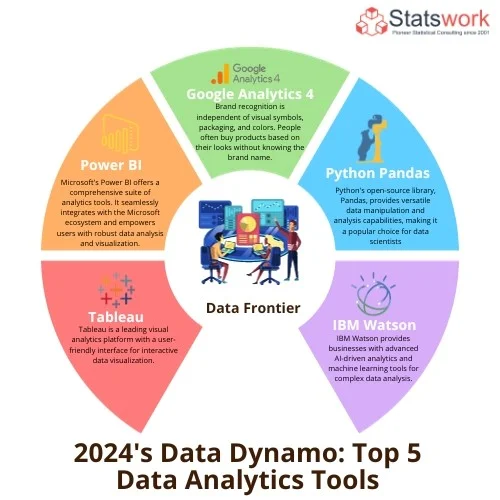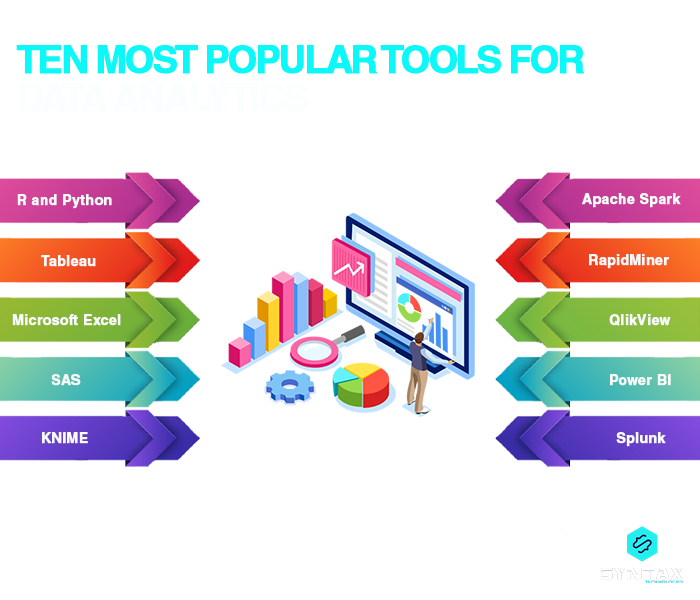Make The Most Of Development: How Analytics Drive Better Methods
In today's data-driven landscape, companies significantly recognize the crucial role of analytics in shaping reliable growth strategies. By taking advantage of data understandings, services can refine their operational strategies, expect market changes, and boost customer interaction. Nonetheless, the challenge exists not only in gathering information however in properly interpreting it to drive substantial end results. As we check out the essential advantages and approaches related to analytics, a vital inquiry arises: how can organizations guarantee they are leveraging these understandings to open their complete potential? The answer may redefine the future of critical preparation.
Recognizing Information Analytics
Data analytics is an organized computational evaluation of information that enables organizations to uncover significant patterns and understandings. This procedure incorporates a selection of strategies, including statistical evaluation, anticipating modeling, and information mining, which jointly aim to change raw information right into workable info - Analytics. By utilizing these techniques, companies can make educated decisions that are rooted in empirical evidence rather than instinct alone
The structure of data analytics hinges on its capacity to handle substantial amounts of details from diverse sources. This includes organized information, such as databases, and disorganized information, consisting of social networks communications and consumer responses. With making use of specialized software and tools, analysts can extract and refine this information effectively, identifying trends and relationships that might not be immediately apparent.
Understanding data analytics likewise involves recognizing the value of information high quality and integrity. Accurate and reputable data is critical for significant evaluation; thus, companies should implement durable data governance techniques. The iterative nature of analytics permits for continuous improvement and improvement of methods, making sure that organizations stay dexterous in the face of changing market dynamics and customer behavior.
Trick Benefits of Analytics

One of the crucial advantages of analytics is its ability to provide actionable insights. Organizations can quickly assess large amounts of data, uncovering patterns that may not be immediately evident. This assists in expecting market changes and adapting techniques accordingly. Additionally, analytics fosters a culture of evidence-based decision-making, lowering dependence on instinct and uncertainty.
One more substantial benefit is enhanced customer understanding. Analytics devices allow organizations to section their audience, track customer habits, and customize advertising efforts. This targeted strategy not just improves consumer interaction but also drives greater conversion rates.

Implementing Analytics Strategies
To fully understand the advantages of analytics, organizations have to adopt structured strategies for execution. This begins with clearly specifying purposes that align with broader service objectives. By establishing certain, quantifiable end results, companies can concentrate their analytics initiatives on areas that yield the greatest roi.
Following, companies should prioritize data administration to ensure the honesty and security of the data being evaluated. This includes establishing protocols for information collection, storage space, and access while adhering to relevant guidelines. Making certain high-grade information is important for producing significant understandings.
In addition, fostering a culture of data-driven decision-making is vital. This needs training workers to translate analytics searchings for and encouraging collaboration across divisions. They are much more likely to incorporate understandings right into their everyday operations. when teams understand the worth of analytics.
Last but not least, organizations ought to regularly examine and fine-tune their analytics techniques. The landscape of data and modern technology is consistently evolving, and remaining versatile will allow companies to take advantage of new tools and methodologies properly. By carrying out these structured approaches, companies can make best use of the effect of their analytics efforts and drive lasting growth.
Tools for Efficient Evaluation
Efficient analysis counts on a variety of tools that facilitate the removal of insights from information - Analytics. These tools can vary from basic spreadsheet applications to advanced equipment discovering systems, each offering an one-of-a-kind objective in the analytical procedure
Information visualization software, such as straight from the source Tableau and Power BI, plays a critical role in transforming complex datasets into easy to understand visual depictions. These tools allow analysts to determine patterns and fads rapidly, permitting even more informed decision-making.
Statistical evaluation software program, like R and SAS, offers sophisticated capabilities for performing in-depth analyses, including regression, hypothesis testing, and predictive modeling - Analytics. These functions encourage companies to attract meaningful conclusions from their information, identifying prospective chances and dangers
In addition, data source monitoring systems such as SQL and NoSQL data sources give the necessary infrastructure for storing and querying large volumes of information effectively. They make sure that information is arranged and easily accessible for analysis.
Finally, service intelligence platforms integrate various data sources, giving a comprehensive view of business efficiency. By making use of these devices effectively, businesses can boost their logical abilities, allowing them to create approaches that make best use of growth and improve overall efficiency.
Case Studies of Success
Effective organizations typically utilize data analytics to drive impactful approaches, as shown by a number of noteworthy instance studies. By using these insights, Netflix has effectively tailored its content recommendations, resulting in boosted user engagement and client retention.

Furthermore, Starbucks uses information analytics to determine optimal store locations and refine its item offerings. By checking out consumer demographics and purchasing patterns, Starbucks successfully identifies high-potential markets and tailors its menu to regional tastes, driving sales and client loyalty.
These situation studies highlight that reliable application of information analytics can bring about critical benefits, promoting advancement and development within organizations across various industries.
Conclusion
In final thought, the integration of analytics right into organizational strategies dramatically improves decision-making processes and cultivates sustainable development. The efficient implementation of analytics devices further supports agility and technology, find more allowing companies to navigate affordable landscapes with greater precision.
Information analytics is a methodical computational analysis of data that makes it possible for organizations to reveal meaningful explanation patterns and understandings.Understanding information analytics additionally includes identifying the significance of data quality and stability. Trustworthy and exact data is critical for meaningful evaluation; hence, organizations have to execute durable data governance methods.Following, organizations must focus on data governance to make sure the honesty and safety and security of the data being assessed.Effective organizations often take advantage of information analytics to drive impactful techniques, as shown by numerous significant situation studies.